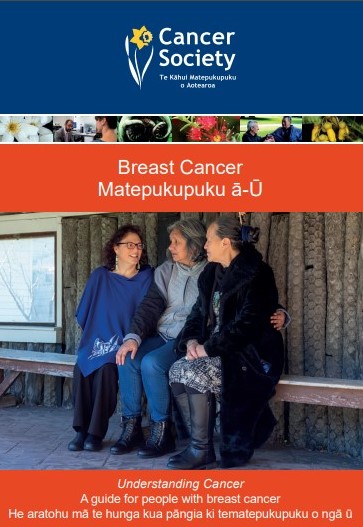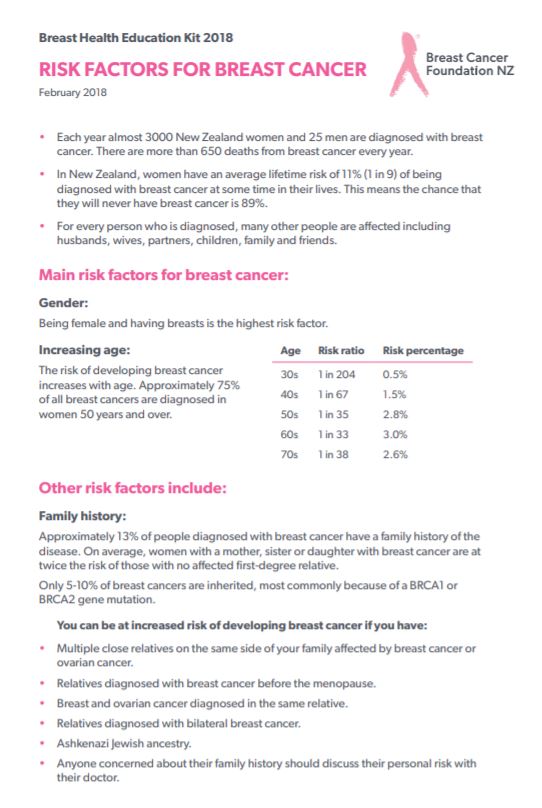The causes of breast cancer are not clear, but many risk factors are known. The following factors increase your chance of getting breast cancer:
- Being female.
- Getting older (for females).
- Having previously had breast cancer.
- having an increased number of abnormal cells in the milk ducts (atypical hyperplasia). This can be seen in a breast biopsy.
- A family history of breast cancer:
- This risk can be mild, moderate or high, and depends on the number of relatives affected, whether they are first or second-degree relatives (first-degree are sisters, brothers and parents), and the age of the relative(s) when their breast cancer was found.
- People who have inherited one of the abnormal BRCA genes associated with breast cancer.
Even with a high risk, most people won't develop breast cancer.
Heredity and breast cancer
About 1 in 20 breast cancers is caused by a faulty breast cancer gene. If yours was caused by such a gene, your doctor can help you decide whether genetic testing would be helpful for your wider family. Find out more about the BRCA gene.
Most women who develop breast cancer have no family history of the disease, so being aware of what to watch out for and having regular mammograms are your best protection.
Read more about breast cancer screening and mammograms.









